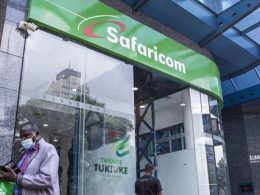By Mark Kawalya
The scarcity of US dollars in Kenya has negatively impacted businesses in Kenya, especially those that rely on the foreign currency for the importation of input materials. One of those that has been severely hit is Pwani Oil, the maker of Fry Mate, Freshfri and Salit cooking oils, that had to close its doors due to a lack of raw materials, which the company primarily accesses by paying suppliers in US dollars.
According to the consumer goods maker, its bankers were only able to process half the dollar orders it requires to facilitate the payment of suppliers of crude palm oil imports from Malaysia that are not helped by the stiff international competition for the crude.
“Getting a sufficient amount of US dollars required to support the factory in terms of getting enough raw materials is not happening. We are not even running the plant right now because we dont have raw materials [crude palm oil],” Pwani Oil Commercial Director Rajul Malde said.
“We are competing for the same oil with the rest of the world and, therefore, prices are high. Added to that, we can’t pay on time, so we don’t get priority in supply. ” he said
However, Patrick Njoroge, the Central Bank of Kenya Governor, dismissed the Kenya Association of Manufacturers (KAM) claim that the shortage in the currency had led to the emergence of a parallel exchange rate with dealers buying and selling the dollar above the official rate.
The executive maintained that the local foreign exchange market has about $2 billion changing hands every month, which he said was sufficient to satisfy the demand from importers and companies that are looking to make payments like dividends.
However, Pwani Oil’s Mr. Malde doesn’t agree with this narrative. “At the moment, based on the inflows from banks, we are only able to source between $500,000 and $1 million a day against a requirement of $2- $2.5 million a day. So, we are only getting half of what we need, sometimes even less than half, “he said.
“Terms [of suppliers] are normally cash against documents. So, when they ship a container out, they will send us a copy of the documents, and we need to pay to get those [original] documents to clear the cargo. Now that’s where the challenge is because if there aren’t enough dollars available, how do you pay and get the documents to clear? “
However, Kenya’s foreign exchange reserves, which are largely tapped for debt payments and essential government imports such as medicines, last Thursday grew to $8.219 billion, or the equivalent of 4.89 months of import cover, from $8.177 billion a week earlier.








